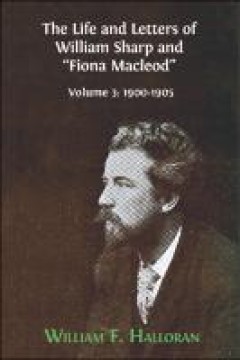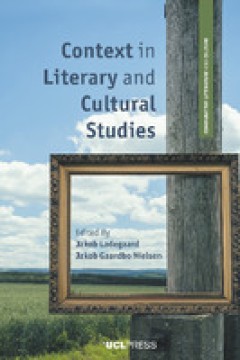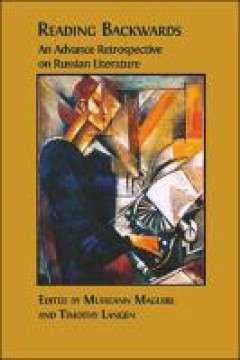Filter by

Annotations in scholarly editions and research : functions, differentiation, …
The notion of annotation is associated in the Humanities and Information Sciences with different concepts that vary in coverage, application and direction of impact, but have conceptual parallels as well. This publication reflects on different practices and associated concepts of annotation, puts them in relation to each other and attempts to systematize their commonalities and divergences in a…
- Edition
- 7
- ISBN/ISSN
- 9783110689112
- Collation
- viii, 399 p. : ill.
- Series Title
- -
- Call Number
- 801.9590285 NAN a
Entertaining the idea : shakespeare, performance, and philosophy
To entertain an idea is to take it in, pay attention to it, give it breathing room, dwell with it for a time. The practice of entertaining ideas suggests rumination and meditation, inviting us to think of philosophy as a form of hospitality and a kind of mental theatre. In this collection, organized around key words shared by philosophy and performance, the editors suggest that Shakespeare’s …
- Edition
- -
- ISBN/ISSN
- 9781487536237
- Collation
- ix, 237 p.
- Series Title
- -
- Call Number
- 822.33 GAL e

The life and letters of William Sharp and "Fiona Macleod." : Volume III 1900-…
William Sharp (1855-1905) conducted one of the most audacious literary deceptions of his or any time. Sharp was a Scottish poet, novelist, biographer and editor who in 1893 began to write critically and commercially successful books under the name Fiona Macleod. This was far more than just a pseudonym: he corresponded as Macleod, enlisting his sister to provide the handwriting and address, and …
- Edition
- -
- ISBN/ISSN
- 9781800640078
- Collation
- x, 471 p. : ill. ; 15.6 cm.
- Series Title
- -
- Call Number
- 820.8 WIL t

Critical alliances : economics and feminism in English women's writing, 1880-…
Critical Alliances argues that late-Victorian and modernist feminist authors saw in literary representations of female collaboration an opportunity to produce new gender and economic roles for women. It is not often that one thinks of female allegiances – such as kinship networks, cultural inheritance, or lesbian marriage – as influencing the marketplace; nor does one often think of economi…
- Edition
- -
- ISBN/ISSN
- 9781442625600
- Collation
- x, 297p.
- Series Title
- -
- Call Number
- 820.93522 CRI c

The classic short story, 1870-1925: theory of a genre
The ability to construct a nuanced narrative or complex character in the constrained form of the short story has sometimes been seen as the ultimate test of an author's creativity. Yet during the time when the short story was at its most popular—the late nineteenth and early twentieth centuries—even the greatest writers followed strict generic conventions that were far from subtle. This ex…
- Edition
- -
- ISBN/ISSN
- 9781909254770
- Collation
- 222 p. ; ill
- Series Title
- -
- Call Number
- 801.95 GOY t

Middlemarch: epigraphs and mirrors
In Middlemarch, George Eliot draws a character passionately absorbed by abstruse allusion and obscure epigraphs. Casaubon’s obsession is a cautionary tale, but Adam Roberts nonetheless sees in him an invitation to take Eliot’s use of epigraphy and allusion seriously, and this book is an attempt to do just that. Roberts considers the epigraph as a mirror that refracts the meaning of a tex…
- Edition
- -
- ISBN/ISSN
- 9781800641600
- Collation
- 149 p. : ill. ; 24 cm
- Series Title
- -
- Call Number
- 823.8 ROB m

Romanticism and time: literary temporalities
‘Eternity is in love with the productions of time’. This original edited volume takes William Blake’s aphorism as a basis to explore how British Romantic literature creates its own sense of time. It considers Romantic poetry as embedded in and reflecting on the march of time, regarding it not merely as a reaction to the course of events between the late-eighteenth and mid-nineteenth centu…
- Edition
- -
- ISBN/ISSN
- 9781800640733
- Collation
- xxii, 286 p. : ill. : ind. ; 24 cm
- Series Title
- -
- Call Number
- 809.9145 ROM r

Context in literary and cultural studies
Context in Literary and Cultural Studies is an interdisciplinary volume that deals with the challenges of studying works of art and literature in their historical context today. The relationship between artworks and context has long been a central concern for aesthetic and cultural disciplines, and the question of context has been asked anew in all eras. Developments in contemporary culture and…
- Edition
- -
- ISBN/ISSN
- 9781787356245
- Collation
- XV, 241 p.
- Series Title
- -
- Call Number
- 809 CON c

Vertical readings in dante's comedy : volume 3
Vertical Readings in Dante’s Comedy is a reappraisal of the poem by an international team of thirty-four scholars. Each vertical reading analyses three same-numbered cantos from the three canticles: Inferno i, Purgatorio i and Paradiso i; Inferno ii, Purgatorio ii and Paradiso ii; etc. Although scholars have suggested before that there are correspondences between same-numbered cantos that beg…
- Edition
- -
- ISBN/ISSN
- 9781783743605
- Collation
- xi, 266 p. ; ill
- Series Title
- -
- Call Number
- 851.1 COR v

Reading backwards: an advance retrospective on Russian literature
"This edited volume employs the paradoxical notion of ‘anticipatory plagiarism’—developed in the 1960s by the ‘Oulipo’ group of French writers and thinkers—as a mode for reading Russian literature. Reversing established critical approaches to the canon and literary influence, its contributors ask us to consider how reading against linear chronologies can elicit fascinating new patte…
- Edition
- -
- ISBN/ISSN
- 9781800641211
- Collation
- 302 p.: colour, ill.
- Series Title
- -
- Call Number
- 891.709 MAG r
 Computer Science, Information & General Works
Computer Science, Information & General Works  Philosophy & Psychology
Philosophy & Psychology  Religion
Religion  Social Sciences
Social Sciences  Language
Language  Pure Science
Pure Science  Applied Sciences
Applied Sciences  Art & Recreation
Art & Recreation  Literature
Literature  History & Geography
History & Geography